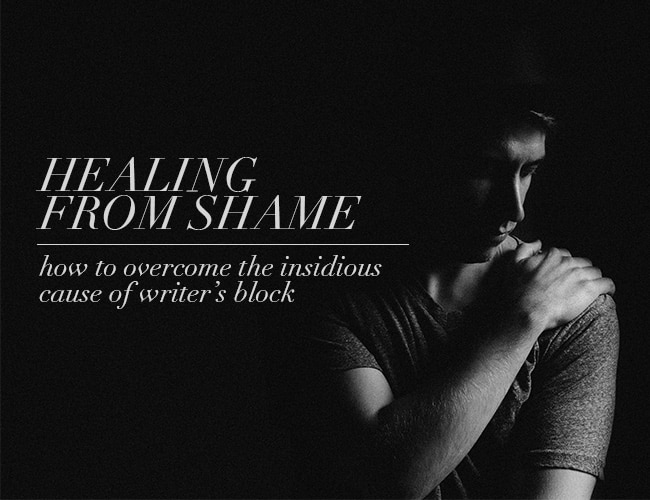
by Guest Blogger |
“I published a book, didn’t tell a soul about it, and it became a best seller!!” Said no writer ever.
But we wish it were true, don’t we? We want to hole up and write epic tales and thought-provoking prose, not hock books door to door and shout from the rooftops about how awesome we are. Can’t we just write? Well … write, but also be discovered and then catapulted to great heights by someone else.
We’d like readers to find us that way, please. We don’t want to navigate those scary waters of how to market a book.

by Guest Blogger |
It’s time to write that scene. You know, the one you’ve been avoiding. You’ve sketched out your character and the scene’s objective, but how do you get your character from point A to point B? What exact words should he use? What specific actions should she take to accomplish her scene goal?
If you’ve ever faced that blank page with these questions in mind, you’ll be pleased to learn about three techniques, borrowed from the actor’s playbook, that will boost your writing and make your story shine. Let’s take a look at how to write a scene with the mindset of an actor.

by Guest Blogger |
It can feel impossible to know where to start writing. We can become paralyzed by fear, worrying our words will offend or bore readers, or worse, that we’ll never have any readers at all. In order to move past these feelings, we have to overcome perfectionism.
That’s easier said than done, but these three strategies make all the difference.

by Guest Blogger |
Every time we sit down to write, our mood and state of mind affect our words. We infuse, to some extent, everything we write with our unique “voice.” Our emotions come through on the page.
When we’re struggling to eke out even a few words and make sense of our writing, it shows in our work. Our characters are flat. Our scenes are dull and passive. Our plot is thin and weak. Nothing we try fixes the problems. Or, maybe words don’t come at all.
We may declare that we have a case of writer’s block, particularly if we’ve wrestled with the vexation for weeks or months. But, there may be a stronger and more insidious obstacle: shame.

by Guest Blogger |
Have you ever used a word for years — like, maybe during your thesis defense or in a high-profile report for work — then realized one day that you had it totally wrong? That big word you thought was making you look so erudite was, in fact, working against you. Turns out, coif is not the same as coiffure, and you never even realized it.
No one is immune from this, neither journalists nor poets, essayists nor novelists. The problem often stems from our natural inclination as writers to grab hold of an exciting new word and just run with it. Not only do we end up using words just plain wrong, our enthusiasm leads to overuse as well.
By slowing down just a little bit, recognizing common pitfalls, and inserting some deliberate practice into your vocabulary usage, you can turn this trend around.




